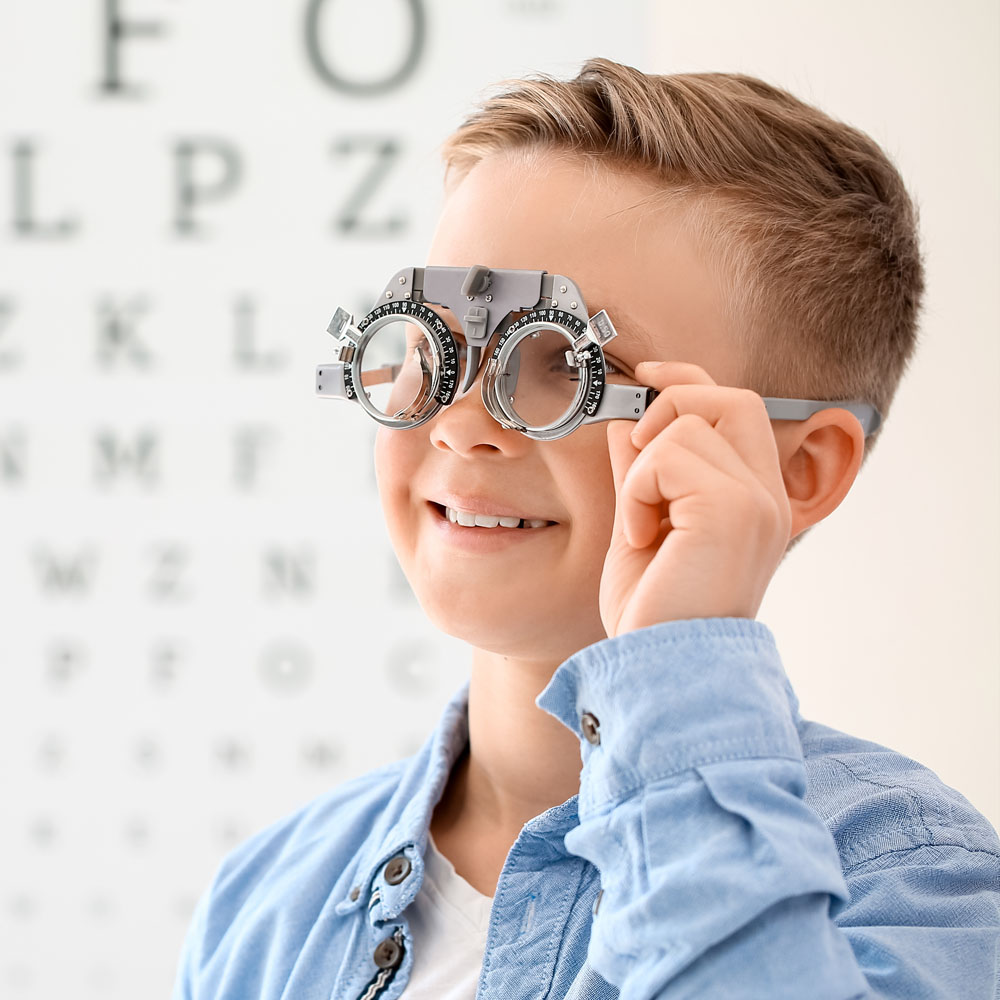
Your Vision. Your Future.
Is your child having a hard time seeing the board in class?
Do you struggle to read fine-print in books and menus?
Regular comprehensive eye exams involve a series of tests that enable your Powell eye doctor to check your eye health and vision. This type of eye exam can only be performed by an eye doctor, and shouldn’t be confused with the vision screenings given in schools or other non-professional settings.
Having regular comprehensive eye exams is crucial when it comes to protecting your eyes from sight-threatening diseases, and ensuring that your optical prescription is up-to-date. A comprehensive eye exam can also reveal signs of a general health condition like diabetes, hypertension or high cholesterol. Contact our eye care clinic today to schedule your comprehensive eye exam today! 
Why Is It Important to Get Your Eyes Tested Regularly?

Comprehensive eye exams are an important part of maintaining great vision and eye health for the entire family.
During your eye exam, your eye doctor will check for any refractive errors or visual skill deficiencies that may hinder development or learning, and diagnose, manage, and treat eye diseases and conditions, including glaucoma, diabetic retinopathy or macular degeneration that can cause severe vision loss in adults.
Many of these sight-robbing conditions show little to no symptoms until they’ve already caused learning difficulties, significant damage to the eye, and/or irreversible vision loss. Routine eye exams ensure early diagnosis and treatment of these and other conditions.
What to Expect From Your Eye Exam
-
Glasses/contact lens prescription updates
We'll provide you with an updated prescription so that you can see clearly. Some people require a new prescription every year, whereas others only need a new prescription every 2-3 years.
-
Evaluating your child’s vision for learning
Conditions such as strabismus and amblyopia, and visual skill deficiencies such as convergence insufficiency can negatively impact your child’s learning.
-
Diagnosis & treatment of eye diseases
Eye diseases such as glaucoma, macular degeneration and diabetic retinopathy may show no symptoms until it’s too late. The earlier the treatment, the more effective the outcome.
-
Rule out signs of systemic diseases
Common systemic diseases such as diabetes and stroke can first be detected in the eyes as part of a comprehensive eye exam.
Book An Eye Exam At Complete Family Eyecare Today
Comprehensive Eye Exams FAQs
No. Vision screenings like the one performed for children in school or at optical-only stores only check for 20/20 vision. They do not check for the presence of sight-threatening eye diseases such as glaucoma, macular degeneration or cataracts. They also do not check for visual skill deficiencies such as problems with visual tracking or processing. Comprehensive eye exams are more thorough and use advanced equipment to evaluate your vision and eye health.
Eye doctors usually recommend that you come in for a comprehensive eye exam at least once a year. This ensures that your glasses or contact lens prescription stays up to date and that signs and symptoms of developing eye conditions are caught early before they cause lasting damage.
It’s important not to delay eye exams for young infants and children as some early eye problems can affect vision for life. Detecting vision problems early can keep a minor issue from becoming something serious (and more challenging to treat).
Want to get your children off to a good start in life? Visit Complete Family Eyecare for an eye exam today!
Meet our Comprehensive Eye Exams Specialists
Comprehensive Eye Exams in Powell

Meet our Eye Doctors

- Monday 8:30 am - 5:00 pm
- Tuesday 8:30 am - 5:00 pm
- Wednesday 8:30 am - 5:00 pm
- Thursday 8:30 am - 5:00 pm
- Friday 8:30 am - 5:00 pm
- Saturday Closed
- Sunday Closed
- EyeMed
- VSP
- Davis Vision
- Spectera
- Superior Health Plan


